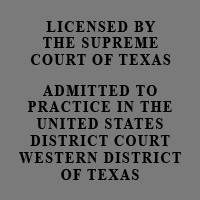Texas Wealth Management Fraud Lawyer Helps Families Protect and Reclaim Wealth from Banks, Wealth Managers, and other Financial Professionals by Texas Wealth Management Fraud Lawyer Jason Coomer
Many families hire wealth managers, investment firms, and other financial professionals to handle and invest their wealth. Unfortunately, some wealth managers, financial planners, or other financial professionals take advantage of this trust and take or lose this wealth. More specifically, some financial professionals invest other people's wealth in risky investments or in ways that benefit the financial professional instead of families. It is also not uncommon for a wealth manager or other financial professional to begin thinking of the wealth that they control as their own. Further, when a family member dies or becomes incapacitated, elderly, or forgetful, some wealth managers see an opportunity to take wealth. Many families, especially elderly people and greiving families after the loss of a loved one, are taken advantage by financial professionals and end up losing significant wealth.
If you or your family have lost a large amount of wealth through misappropriation of funds or questionable investments by a wealth manager, investment firm, or other financial institute, please feel free to submit an inquiry or send an e-mail message to Texas Wealth Management Fraud Lawyer Jason Coomer. Texas Wealth Management Fraud Lawyers may be able to help your family recover your losses or at least prevent a wealth manager from getting away with fraud and stealing money from other families.

Below are some helpful FAQs regarding protecting and reclaiming investment accounts held by wealth managers and other financial professionals:
Q1: What is the best way to protect my family's wealth when investing in an investment account through a wealth manager or another financial professional?A1: The best way to protect your family's wealth when investing with a wealth manager or financial professional is to keep accurate records of and monitor the investment account. More specifically, make sure that you have copies of all sign up information and timely review each account statement. Further, do not be afraid to ask questions about the risk of, potential return on, and any losses suffered in an investment account.
Q2: What should my family do if a signficant amount of money is missing from our investment account?A2: If a significant amount of money is missing from your investment account, you should first review your account statements to identify the cause of any loss. All investments have risk and many times there is a simple explanation for a loss of value. However, if a review of your account does not answer your question, it is often best to contact your financial professional for an explanation. In many of these situations, it is also best to get the answer about the loss in writing via email. This will document the explanation for your records and allow you to review it in the future. Many financial investment firms record telephone conversations with investors, but keep in mind that typically these recorded calls protect the financial professional and not the investor. If you still don't get a satifactory answer, it is then often a good idea to contact a lawyer.
Q3: What should my family do if the wealth management department or financial investment firm will not provide basic information about my family's investment account?A3: Often an investment account holder becomes unable to communicate effectively with their financial professionals, becomes incompetent, or dies. In these situations, it is important work with the wealth managers to determine what needs to be done to authorize a family member to communicate and obtain account information. Often a power of attorney, letters of guardianship, copy of a trust, or letters of testament are needed to authorize a family member to communicate about the account. Wealth management lawyers often help families, heirs, and beneficiaries regain control of investment accounts.
Q4: What happens if we discover investment fraud, misappropriation, or other illegal conduct regarding an investment account?A4: If after reviewing your family's investment account, you believe that your wealth manager or investment firm has committed illegal conduct, it is important to gather all documentation regarding the account and evidence of illegal conduct, then contact a wealth management lawyer to thoroughly review your potential case.
Texas Wealth Management Fraud and Financial Elder Abuse Are On The Rise As Some Financial Service Professionals as well as Other Opportunists Take Wealth From Families, Retirees, Widows, and other Texans
Unfortunately, some financial service professionals including wealth managers take wealth from their clients. More specifically, some of these financial professionals when they are not being closely watched will take advantage of retirees, elderly persons, widows, and unsophisticated investors. Further, these wealth managers and others who take advantage of senior investors commonly target woman over the age of 70 years old. They also often take advantage of those who trust the wealth manager and banks to properly handle their money and investments.
Texas Wealth Management Fraud Lawyers Can Sometimes Take Fraud, Breach of Fiduciary Duty, and other Cases on Contingent or Hybrid Contracts
In many situations, where a significant amount of wealth is stolen from a family, the family does not have the resources to litigate against a wealth manager or a bank. These cases can be extremely expensive with signficant expenses and attorney's fees. In these situations families often need to locate a lawyer who will work on a contingent or hourly contract. Many firms do not take contingent cases and often require large retainers to handle wealth litigation. However, there are some lawyers who will help a family on contingent or hybrid contracts.
In these situations, the Texas Contingent Lawyer will typically need to review the facts of the case to make sure that significant wealth has been wrongfully taken. Further, the same information that this attorney will need to review is the same information that the family should be pulling together for any lawsuit. This information includes documentation of the original investment, statements regarding the value of the wealth over time, and evidence of wrongdoing. Pulling together this information should be the first step taken in reclaiming wealth. Further, in some situations, the family is unable to pull together this information. In these situations, they can often hire a lawyer to review documents, request information, and investigate the potential case. In some of these cases, a lawyer can start investigating a case on an hourly contract, then convert to a contingent contract. Further, some lawyers will even work on hybrid contracts with low hourly rates, plus a percentage of the recovery. Each lawyer is different and each case is different, but it is important to understand your potential options and understand when a lawyer is willing to risk their resources on a case.
Texas Breach of Fiduciary Duty Law Can Created A Fiduciary Relationship on a Wealth Manager, Financial Institute, Bank, or Financial Advisor When the Wealth Manager Is Authorized to Manage and Invest a Person's Money
To prevail on a breach of fiduciary duty claim under Texas law, a plaintiff must first prove the existence of a fiduciary relationship between the plaintiff and the defendant. See Lundy v. Masson, 260 S.W.3d 482, 501 (Tex. App.Houston [14th Dist.] 2008, pet. denied). A fiduciary duty arises out of agency law based upon a special relationship between the two parties. In re Bass, 113 S.W.3d 735, 743 (Tex. 2003) (orig. proceeding) (citing Johnson v. Brewer & Pritchard, P.C., 73 S.W.3d 193, 200 (Tex. 2002)); see also Shands v. Tex. State Bank, 121 S.W.3d 75, 77 (Tex. App.San Antonio 2003, pet. denied) (stating that an agency relationship creates a fiduciary relationship as a matter of law). An agent is a person who is authorized to act for another and is subject to the control of the other. SITQ E.U., Inc. v. Reata Rests., Inc., 111 S.W.3d 638, 652 (Tex. App.Fort Worth 2003, pet. denied) (noting that agency is generally a question of fact and that the trial court, as factfinder, was free to resolve any inconsistencies in the conflicting testimony to support its implied finding of agency). Texas law does not presume agency, and the party who alleges it has the burden of proving it. IRA Res. Inc. v. Griego, 221 S.W.3d 592, 597 (Tex. 2007); Tex. Cityview Care Ctr., L.P. v. Fryer, 227 S.W.3d 345, 352 (Tex. App.Fort Worth 2007, pet. dismissed) (same).
In Western Reserve Life Assurance Co. v. Graben, 233 S.W.3d 360, 373-74 (Tex. App.Fort Worth 2007, no pet.), the Fort Worth Court of Appeals concluded that an informal fiduciary relationship existed where an individual (Hutton) began performing as a financial advisor to two clients who were not sophisticated investors and represented to them that he would monitor and manage their investments and make appropriate financial plans. The clients had specifically told Hutton that they depended upon him for his counsel, experience, and advice. Also, Hutton testified that the relationship he had with the clients was a very sacred trust and that he treated them better than I would treat myself. Also, an expert witness for certain brokers who also were sued testified that someone who represents themselves as an investor advisor [like Hutton did] has a heightened responsibility to review the account and act as a fiduciary. Importantly, on the specific facts of this case, the court of appeals rejected the broker-defendants argument that a fiduciary relationship must have existed prior to, and apart from, the agreement made the basis of the suit.
Finally, in Lee v. Hasson, 2007 WL 236899 (Tex. App.Houston [14th Dist.] January 30, 2007, pet. denied), the Fourteenth Court of Appeals in Houston found sufficient evidence of a confidential relationship to support the imposition of fiduciary duties. There, a financial advisor had a long-standing personal relationship with the client, they had vacationed together, and the client had relied upon him for support and advice during the clients divorce.
The SEC and FINRA Are Targeting Fraudulent Wealth Managers, Financial Institutes, and Banks
Recent decisions by the Securities and Exchange Commission (SEC) imposed over $1.4 billion in penalties on several top investment banks, brokerage firms, financial advisors, and brokers. As such, it is apparent that you cannot always trust financial advisors to give you the complete picture regarding stocks, bonds, and other securities. If you feel that your financial advisor has not been honest and has caused you to suffer significant investment losses, your best bet to recover your losses from investment fraud or securities fraud losses is to speak to an experienced financial advisor fraud lawyer regarding your financial fraud concerns.
Texas Wealth Management Fraud Lawyers Commonly Work In Teams To Handle Large Wealth Management Fraud and Breach of Fiduciary Duty Lawsuits
Texas Wealth Manager fraud Attorney, Jason Coomer helps families who have lost significant wealth to wealth managers and other financial professionals. He also commonly works with other Texas Wealth Manager Fraud Lawyers are large financial fraud cases. He and the lawyers he works with also handle several other types of family wealth protection and commercial litigation cases. His office frequently works with other professionals including Houston Investment Fraud Lawyers, Dallas Broker Fraud Lawyers, San Antonio Investment Fraud Lawyers, and other Austin Investment Fraud Lawyers to provide high end professional legal services at reasonable prices. For more information, please feel free to submit an inquiry or send an e-mail message to Texas Wealth Manager Fraud Lawyer.
Feel Free to Contact Us with any Questions
Associations




